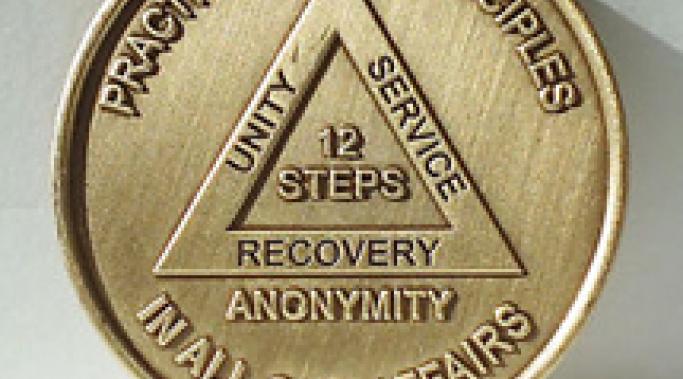Blogs
Schizophrenic voices on Thanksgiving are not fun. People with schizophrenia and schizoaffective disorder aren’t the only people who may dread the holidays. In When Harry Met Sally, Harry (played by Billy Crystal) tells Sally (Meg Ryan) that he wishes he could just skip the weeks from Thanksgiving through New Year.
The holidays are here and one of the issues people face when spending time with family is that some loved ones don’t believe in mental illness. This lack of belief often upsets people with mental illness tremendously and makes them even doubt themselves and their own experiences. This lack of belief can be very detrimental, indeed. But you needn’t be so harshly affected when your loved ones don’t believe in mental illness.
For many people around the world, December is a month of celebration, with numerous holidays taking place throughout the last month of the year, but managing the holidays with dissociative identity disorder can be tricky. The holidays can be joyous and exciting for those who celebrate. For many with dissociative identity disorder (DID), however, this time of the year can be tremendously stressful and anxiety-provoking. Dissociative symptoms can worsen during the holidays, but there are steps you can take to make managing the holidays with DID a little easier.
Holiday season isolation can be destructive to your self-esteem; however, you can learn to deal with the pain of holiday season isolation. Perhaps you don’t have real friends or family, you have a toxic family, loved ones are far away or friends are too busy with their own families. The festive season can also be a trigger for mental health issues including depression, anxiety, disordered eating, bipolar disorder, addictions and grief. If you're experiencing a mental health issue you might not be in the mood to celebrate, and you can feel isolated even if you're surrounded by people. Alternatively, you might not celebrate due to your beliefs. No matter what the reason for your holiday season isolation, it's important to minimise the impact it has on your self-esteem and general wellbeing.
There are many ways the 12 steps help besides addiction relief. Recently, I lost my bus pass. I decided to ride my bike into town to save money, only to discover that someone had stolen the seat. I said, "Seriously?" and decided that if that was the worst thing that happened that day, I was blessed, and went about my day in a cheerful mood. That would not have been possible without the 12 steps of A.A.. So here are three ways the 12 steps help besides addiction relief.
Binge eating disorder self-help articles rarely mention having a sanctuary. What's a binge eating disorder sanctuary? Good question. Sanctuary is defined as a a safe haven or a refuge. A binge eating disorder self-help sanctuary is a place where you can go to get away from your stressors and binge eating disorder triggers like winter weather binge eating and overeating due to the holidays. A binge eating disorder self-help sanctuary gives you a chance to breathe, enjoy yourself, and relax. This safe place can be somewhere where you feel spiritual or somewhere where you have good memories or just somewhere quiet where you can get your thoughts together when you're getting overwhelmed. Binge eating disorder self-help starts with a safe sanctuary.
Many people have more anxiety during the holidays and feel less control. These 5 tips will help you feel less anxious during the holidays this year.
When I was working full-time at a fancy software company, I would have never taken a mental health day from work because of bipolar. I would only take sick days when something catastrophic happened and I absolutely couldn’t work. But that didn’t mean that I couldn’t have used a mental health day, here and there. In fact, when you have bipolar disorder, I would suggest that mental health days from work are very important.
I used to be a people pleaser but now I've learned to put myself first. When I was younger, I used to be the kind of person that people could take advantage of easily. When you display that as a young person, it's hard to change as an adult -- but it is possible to put yourself first and stop being a people pleaser.
Yesterday I had a horrible, troublesome, bad binge eating disorder day. My day was so awful, I spent all of last night crying and writing, writing and crying (Binge Eating Disorder and Art Therapy). I felt defeated, helpless, disappointed in myself, and like an utter failure. After a disturbed night's sleep, I still don't feel back to my normal, chipper self. But I got out of bed, put on a dress, went to the tea shop, and started writing this post.










I believe she will only be able to rid herself of her demons, and hopefully her BPD as well, when she's ready to confront the abuse of her father. If she can put the blame where it belongs, she may stop projecting that victim/perpetrator cycle on the present men in her life. These demons are a metaphor for the purgatory she has created for herself. That reality has consequences in the real world, but it need not be real in the tangible sense. Exorcising her demons will require the expenditure of real physical energy and probably the destruction of aspects of her personality. If this ever happens, and it's possible but not probable, then these demons will evaporate. They are only as real as one's personality is real. In short, reality is not the question, it's what you make of the things you feel to be real.